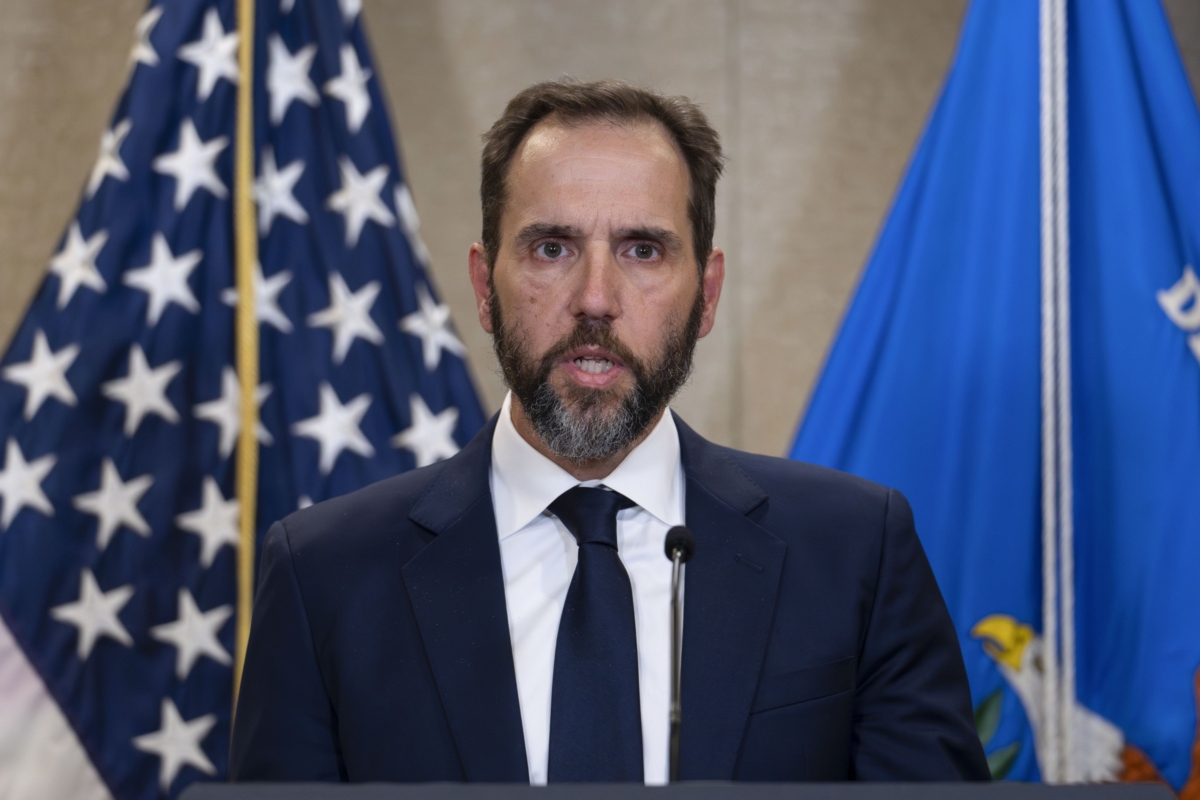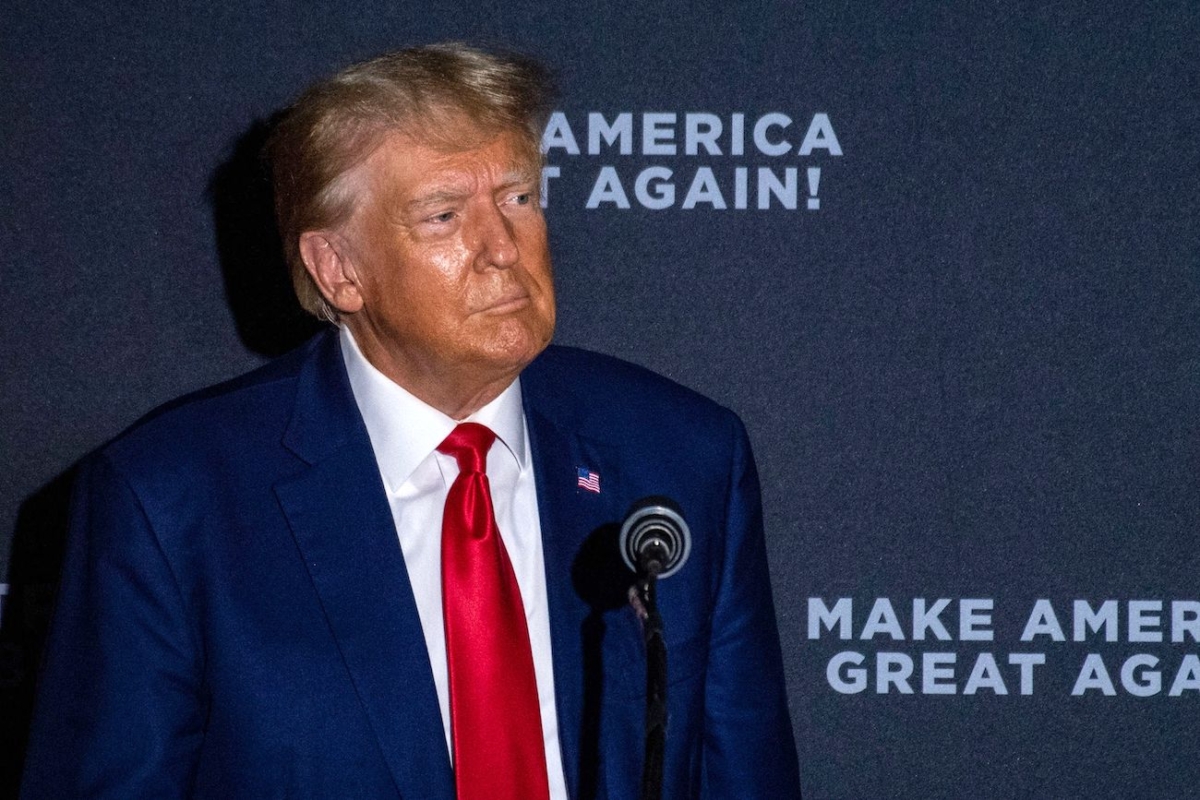|
|
|
|
|
|
SUBSCRIBER EXCLUSIVE | AUGUST 12, 2023 |
|
|
|
|
Did you miss our previous newsletter? You may find it here. |
|
Hunter Biden Gets Special Counsel, Trump Election Case Barreling Forth |
|
|
Petr Svab |
|
For a whole week, the legal cases against former President Donald Trump dominated the headlines with a barrage of developments only for the spotlight to be stolen on Friday when Attorney General Merrick Garland announced a special counsel in the investigation of the first son of President Joe Biden Mr. Garland gave the title to Delaware U.S. Attorney David Weiss, who’s led the investigation since 2021. “On Tuesday of this week, Mr. Weiss advised me that in his judgment, his investigation had reached a stage at which he should continue his work as a special counsel, and he asked to be so appointed,” the attorney general said. “Upon considering his request, as well as the extraordinary circumstances relating to this matter, I have concluded that it is in the public interest to appoint a special counsel.” The investigation resulted in two charges of failure to pay income tax and one of unlawful possession of a firearm. Mr. Weiss offered Mr. Biden a deal involving pleading guilty to the two tax offenses while resolving the gun charge through pretrial diversion with the likely outcome of no prison time. On July 26, U.S. District Judge Maryellen Noreika put the deal on hold, describing it as "atypical" and "unprecedented." Republicans have criticized the deal as a slap on the wrist meant to cover up a large-scale money-making scheme they documented, involving tens of millions of dollars flowing through dozens of companies from foreign clients to various members of the Biden family, though not directly to President Biden. Some GOP lawmakers responded to the appointment of Mr. Weiss with skepticism. “Let’s be clear what today’s move is really about," commented House Oversight Committee Chair James Comer (R-Ky.) in a statement. "The Biden Justice Department is trying to stonewall congressional oversight as we have presented evidence to the American people about the Biden family’s corruption.” Trump’s Rocket Docket Last Friday, Mr. Smith asked the presiding judge, Tanya Chutkan, for a gag order that would prevent President Trump from releasing any of the evidence provided to him by the prosecutors ahead of the trial. The judge only gave the defense three days over the weekend to respond, which President Trump’s lawyers noted with chagrin, since the regular rule in D.C. courts is 14 days. “The Court’s decision to vary from the default Local Rules and allow President Trump less than one business day to respond to this important Motion is a concerning development, inconsistent with his due process rights,” they said in their response. That same day, the judge ordered the parties to offer her two dates, no later than Aug. 11, for a hearing on the gag order. While the defense asked for an Aug. 14–15 date, the judge wouldn’t oblige, setting the hearing for Aug. 11. The day before the hearing, Mr. Smith asked for the trial to start with jury selection on Dec. 11, giving President Trump about four months to prepare his case. |
|
Was this forwarded to you? Sign-up for a all access digital subscription, or register for a free account. |
|
|
Special counsel Jack Smith speaks to the media about an indictment of former President Donald Trump, at an office of the Department of Justice in Washington on Aug. 1, 2023. (AP Photo) |
|
He noted the “particular significance” of a speedy trial in this case, “where the defendant, a former president, is charged with conspiring to overturn the legitimate results of the 2020 presidential election, obstruct the certification of the election results, and discount citizens’ legitimate votes.” Mr. Smith stopped short of noting, however, that it may also be in the interest of President Trump’s political opponents to see the trial during the 2024 presidential race, in which President Trump holds a significant lead on the GOP side. Then, during the Friday hearing, Thomas Windom, one of Mr. Smith’s prosecutors, dropped the factoid that the evidence about to be handed to the defense piles up to more than 11 million documents and files. With record of this magnitude to go through, it’s a “delusional fantasy” for Mr. Smith to envision President Trump’s attorneys in the courtroom ready for jury selection on Dec. 11, commented former federal prosecutor William Shipley, who now represents many of the defendants facing charges stemming from the Jan. 6, 2021, protest and riot at the U.S. Capitol. President Trump is already facing a March 2024 trial date for state charges brought against him in New York and another trial set for May in another federal case litigated in Florida by Mr. Smith. |
|
|
Special counsel Jack Smith speaks to the media about an indictment of former President Donald Trump, at an office of the Department of Justice in Washington on Aug. 1, 2023. (AP Photo) |
|
In the end, Judge Chutkan wouldn’t play along with Mr. Smith’s gag order request. She concluded that an order protecting information the prosecutors label as “sensitive” would suffice, giving a win to the defense. Still, Mr. Windom said most of the evidence will be labeled sensitive anyway. Correction: In our inaugural newsletter, sent on July 8 and 10, we provided an incorrect figure for the estimated amount of student loan debt relief rejected by the Supreme Court. The correct amount is $400 billion. The Epoch Times regrets the error. |
|
|
|
Thank you for being a subscriber If you enjoy what you’re reading, please consider forwarding this email to someone who might find it informative. Your Feedback What do you think of our pick for the top story this week? We'd love to hear from you. You can email me at topstory@epochtimes.nyc. We may feature an exerpt of your response in the next newsletter. |
|
|
|
|
Copyright © 2023 The Epoch Times. All rights reserved. The Epoch Times. 229 W. 28 St. Fl. 7 New York, NY 10001 You are receiving this email because you subscribed to The Epoch Times email list. |





